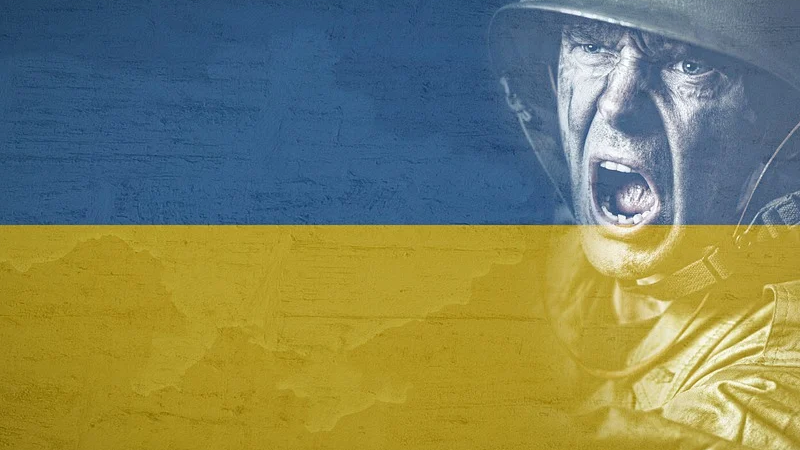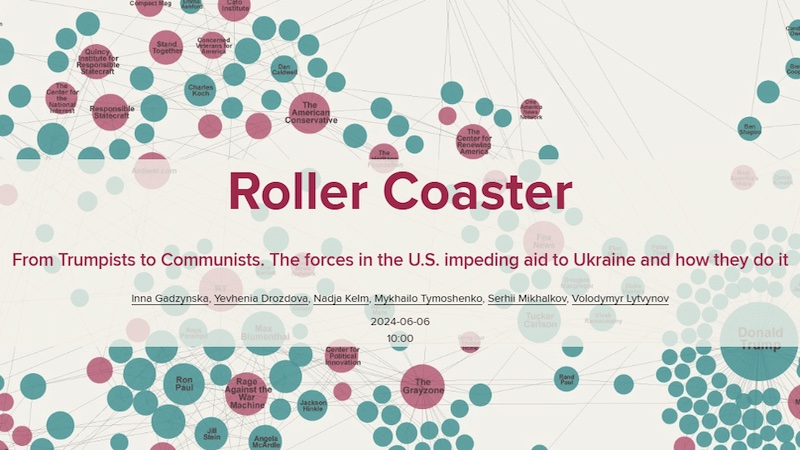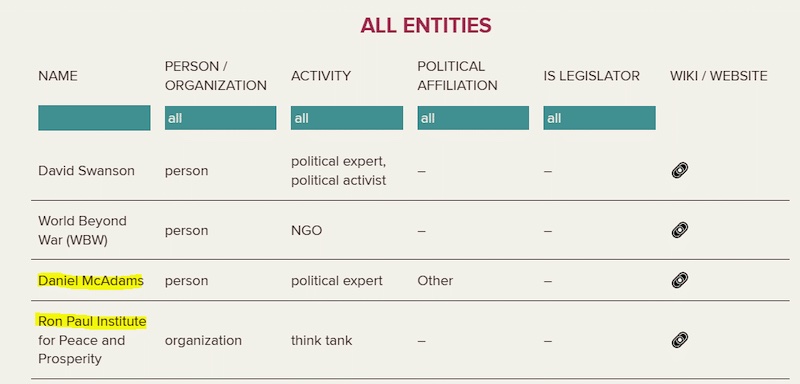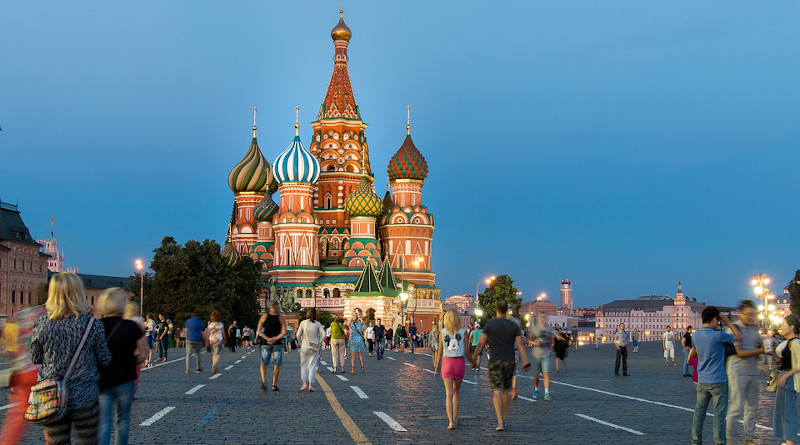

Ukraine can now use U.S. weapons to strike at targets inside Russia. That permission comes with numerous asterisks. The targets are geographically restricted to the northeast region across the border from Kharkiv, for instance, and Ukraine has only received the go-head;to use;short-range missiles.
Other Ukrainian allies are less cautious. The Netherlands has authorized Ukraine to use its recently delivered F-16 fighter jets to;strike pretty much any military target;inside Russia. France is considering the dispatch of military trainers to Ukrainian territory (previously it was conducting such trainings outside of Ukraine).
This relaxation of restrictions has prompted yet;another series of threats;from the Kremlin that it will attack NATO directly or use tactical nuclear weapons within Ukraine. Yet, it is precisely because Russia has made these threats repeatedly—and not followed through on them—that has made it;easier for Ukraine’s allies;to cross the purported “red lines” and supply ever more offensive weapons.
Russia has been brazen and incautious in many ways: invading Ukraine in the first place, committing widespread war crimes, and throwing wave after wave of infantry into the line of fire with its “meat-grinder” tactics. But it has also been fundamentally cautious by not directly engaging NATO forces, escalating the current conflict beyond Ukraine’s borders, or introducing nuclear weapons onto the battlefield.
The Biden administration has certainly devoted a considerable amount of money to the defense of Ukraine and has gone to great lengths to solidify the sanctions regime against Russia. But it, too, has been fundamentally cautious by holding back certain weapons systems from Ukraine, not offering to police a no-fly zone over the country, and not even considering the introduction of U.S. or NATO troops on the ground.
Despite this cautiousness on the part of both Russia and the United States, can the conflict in Ukraine still spin out of control to become a world war with the possible use of nuclear weapons? And does the possibility of Armageddon mean that an immediate peace has become more important than adherence to international law or a minimum of justice for the victims?
Prospects for Peace
Later this month, Switzerland will convene representatives of over 100 countries to discuss Ukraine’s 10-point peace plan. Russia’s not invited, and China doesn’t plan to attend. Nor will Joe Biden be there, much to Ukraine’s disappointment.
The 10-point plan requires Russia to abandon the territory it has occupied in Ukraine. Right now, Russia is not interested in negotiating along those lines. Any peace proposals coming out of the Kremlin are predicated on Russia;keeping what it has already seized.
Ever since;a set of negotiations;that began (and ended) shortly after the 2022 invasion, neither warring party has been interested in compromise. Ukraine believes that it has international law on its side. Russia is confident that it has superior force on its side. And the Kremlin is also convinced that a punishing stalemate will either undercut Ukrainians’ will to resist or their allies’ willingness to maintain military and monetary support.
Indeed, Russia’s recent battlefield victories, however modest, have prompted a number of commentators on this side of the Atlantic to push harder for a ceasefire in the conflict. They do so confident that they are speaking in the best interest of Ukrainians (and world peace).
“Taking advantage of Putin’s apparent openness to a ceasefire and striking a deal now, however unpleasant, will be better for everyone: for the state of Ukraine, for its people, and for the safety of the entire world,”;writes;Branko Marcetic.
That certainly sounds beneficent, even though the “unpleasant” aspects will fall entirely upon the shoulders of Ukrainians.
But let’s take a closer look at the assumptions behind the push for a ceasefire in the Ukrainian conflict, which comes from a motley crew of peaceniks, realists, and right-wing zealots.
Ceasefire Later
The assumptions behind the “ceasefire now” contingent fall into the following categories:
- Ukraine is on the defensive and at risk of losing everything
- Public opinion in favor of the war is softening inside Ukraine and in the West
- It’s just a dispute over territory—surely the two sides can compromise
- Vladimir Putin can be trusted to hold to his side of any bargain
- The risk of nuclear war is great, either in the case of Russia being “backed against the wall” or if the West crosses a red line to save Ukraine from collapsing
Let’s address each assumption in turn.
Ukraine Is Near Collapse
There’s no question that Russia has an advantage over Ukraine in terms of firepower and size of army. It has been bringing in as many as;30,000 new recruits;each month while Ukrainian soldiers at the frontline can only dream of demobilization as the latest wave of new conscripts dribbles in. Over the last few months, Russia has used these advantages to take some territory in the Donbas (around Avdivka), open up a new front northeast of Kharkiv, and battle to regain Robotyne in the south.
But if you look;at the maps, the amount of territory that Russia has gained is marginal—and it has done so at great expense to personnel and military hardware. The most heralded advance, in the direction of Kharkiv, stalled even before the U.S. decision to allow Ukraine to attack targets on the other side of the border where Russian troops have massed. After encountering considerable Ukrainian resistance, Russian troops have begun;digging in around;the Ukrainian town of Vovchansk, after destroying bridges that Ukrainian forces could have used to counterattack and Russian forces could have used to move even closer to Kharkiv.
The window of opportunity for Russian forces to take advantage of the delay in resupplying Ukraine has effectively closed. There was;never much threat;that Russian troops could have taken Kharkiv, if that was ever their goal. At best, Russian forces will expand control over Donetsk and Luhansk provinces, one of President Vladimir Putin’s stated objectives.
At the same time, Russian;continues to attack;energy infrastructure and other civilian targets throughout Ukraine. It has done so effectively because it has air superiority and Ukraine was running out of supplies for its air defense. But with the;delivery of the F-16s;from The Netherlands and Belgium, along with Patriot missiles;from the United States;and another system;from Germany, Ukraine will be better able to defend itself and, eventually, challenge Russian air superiority.
Meanwhile, Ukrainian attacks elsewhere have compromised Russia’s ability to wage this war. It has;taken out radar installationsthat Russia has used to target Ukrainian positions. It has reduced the Russian navy in the Black Sea by a third. It is turning Crimea;from an asset to a liability;by targeting all the military infrastructure Putin has placed there.
So, Ukraine is not on the verge of collapse, though it certainly faces considerable strains as a result of the war and the destruction of civil infrastructure.
The Softening of Public Opinion
Vladimir Putin isn’t waiting for people in the West to tire of the war in Ukraine. He is actively conducting disinformation campaigns to speed that development.
Czech intelligence recently uncovered the latest Russian effort to pour money into the pockets of far-right politicians in Europe who communicate messages favorable to the Kremlin. Started by a former pro-Russian Ukrainian politician, Voice of Europe;used “interviews”;as a way of contacting members of the European far right, strengthen their efforts domestically, and grow the bloc of pro-Russian voices in the European Parliament.
Perhaps the most prominent of these is Petr Bystron, the far-right Alternative für Deutschland’s spokesperson on foreign policy issues. In one recording, Bystron “can be heard complaining to a Voice of Europe official about the difficulty of transporting tens of thousands in cash to his vacation home in Mallorca.” He’s now being investigated on charges of corruption and money-laundering.
Despite this Russian campaign, public opinion hasn’t budged much. In the;spring 2024 Eurobarometer poll, the same 60 percent of respondents supports providing military equipment as they did in the fall 2023 poll. Much larger majorities continue to support sanctions against Russia (72 percent today compared to 72 percent in the fall) and provide financial support to Ukraine (70 percent today versus 72 percent in the fall). Obviously, these results;differ from country to country, with Hungarians and Italians largely opposed to military assistance while those in northern Europe strongly supporting it.
In the United States, despite the delay in getting the legislation to a vote, an overwhelming majority in the House supported the aid package to Ukraine: 311 to 112, with all the opposition coming from Republicans. But even Republicans are finding their courage to stick up for Ukraine, with the chair of the House Foreign Affairs Committee, Michael McCaul (R-TX),;aggressively pushing;the Biden administration to lift restrictions on Ukraine’s use of U.S. weapons. McCaul’s performance suggests that even if Donald Trump wins in November, the mandarins of his party might still marginalize the MAGA caucus on the issue of Ukrainian assistance and join with Democrats to overcome any presidential vetoes.
At the level of U.S. public opinion, the only change has been;among Republican voters. After a dip in 2023, 36 percent of Democrats believe the United States doesn’t provide enough assistance to Ukraine—compared to 38 percent immediately after the invasion. Republicans, on the other hand, have gone from 49 percent holding the “insufficient aid” position to 13 percent today. Trump and congressional allies like J.D. Vance (R-OH), with a lift from the usual Russian disinformation campaigns, have been responsible for this turnaround in Republican sentiment.
And then there’s the most important public opinion of all: Ukrainians. Overwhelming majorities back the current government, its military, and the objective of not giving up any territory to Russia. As Mark Temnycky;writes;in;The Kyiv Post, “Ukrainians would like nothing more than for the conflict to end. But public opinion polls show that the war needs to end on Ukraine’s terms.”
Stop Squabbling over Land
In his interview with Tucker Carlson in February, Putin;went deep into history;to argue that Ukraine has always belonged to Russia, which was the real reason for the invasion, not the threat of NATO expansion. The Ukrainian government, meanwhile,;provides its own history lesson;to demonstrate that Ukrainian language and culture, as well as control over a particular swath of land, goes back hundreds of years.
Don’t be misled by these dueling versions of history. The Russian government wants to create an enormous buffer between itself and the West by transforming Ukraine into a “friendly” neighbor with a puppet government or, at the very least, a dysfunctional state that doesn’t pose a security threat and can’t get its act together to join the European Union.
Ukraine, of course, wants to defend its sovereign borders. But what motivates Ukrainians to fight on is the prospect of living under Russian rule. Ukrainians in occupied territory have been;tortured and killed. Children have been;whisked away;to Russia for adoption (leading to last year’s International Criminal Court arrest warrant for both Putin and his ;commissioner for “children’s rights”). Journalists have been jailed (at least 28 of them). Democratic institutions;have been gutted.
This is what the war is about: a battle between imperial barbarism and democratic civilization (however imperfect).
Trust Putin!
Countries with democratic administrations can’t be trusted to abide by treaties. Obama fought hard for the Paris climate deal; Trump nixed it. From the outside, it just looks like the United States is an unreliable actor.
Russia is not democratic. It hasn’t had free and fair elections during the Putin era. But that also means that Putin, effectively leader for life, can be expected to follow through on a commitment since he won’t be replaced in office or face any serious political opposition from the Duma.
But Putin can’t be trusted, certainly not on issues related to Ukraine. He has clearly stated that he holds Western powers in contempt and has no use for international law if it doesn’t serve his purposes. He thumbed his nose at the Budapest Memorandum, in which Ukraine gave up its nuclear weapons in exchange for security guarantees from Russia, the United States, and the UK. He has paid;no attention to the Geneva Conventions—regarding treatment of prisoners of war—or any of the other human rights conventions that he has violated in his war in Ukraine.
Putin can’t even be trusted to respect force. He invaded Ukraine knowing full well that he was potentially bringing his country into direct confrontation with a much stronger, nuclear-capable alliance. He rolled the dice nonetheless. The lack of democracy in the country, in this case, makes it even less likely that he will be forced to change his position.
We’ll All Be Blown Up!
Nuclear war has been a sword of Damocles hanging over the human race since the first atomic bombs were developed. Deterrence has more or less held the peace, though any number of near-misses;nearly destroyed;the planet anyway.
A direct confrontation between the United States and Russia carries with it an enormous risk of escalation and apocalypse. Fortunately, both sides have gone to some lengths to avoid a direct confrontation over Ukraine. NATO hasn’t sent troops into battle; Russia hasn’t bombed supply lines in NATO countries. The United States has done what it can to limit Ukraine’s ability to strike at targets deep in Ukraine; Russia has not invaded the Baltic countries. Neither side has introduced tactical nuclear weapons into the conflict.
And there is good reason to believe that both sides will continue to do their part to keep the sword of Damocles in place. Putin is a greedy megalomaniac, but he is not a suicidal lunatic. The U.S. government is not (yet) ruled by a madman.
But what if Putin is “backed into a corner”?
The only corner that Putin will be backed into will be at the hands of his own people, who at some point in the future may decide that they’ve had enough of his kleptocratic rule. Both Ukraine and the United States are clear about the risks of destabilizing Russia, so their “maximalist” positions are limited to returning to Ukraine’s pre-2014 borders.
Nuclear war remains a global threat, particularly around flashpoints like the Taiwan Strait, between India and Pakistan, and around Israel. Certainly, the risk of escalation to nuclear war is non-zero in Ukraine. But so far, the two nuclear powers, Russia and the United States, have demonstrated considerable reluctance to escalate.
Give Us Peace…
So, there is no political support for a ceasefire right now in Kyiv or Moscow. Ukraine is not in such desperate straits that it will trade land for peace, and Ukrainians support a continuation of the war despite all the hardships they must endure. The alternative, living under Russian rule, is simply unacceptable, and Ukrainians don’t trust the Kremlin to abide by any agreements.
Whatever scenarios transpire in Ukraine today—Russian gains, stalemate, Ukrainian gains—the best results will be gained if Kyiv has the stronger position at the negotiating table. And that, as Raj Menon;writes in a powerful piece;in;Foreign Policy, requires “that Ukraine boost its bargaining power by ending Russia’s momentum, mounting its own counteroffensive, and retaking more territory.” That, in turn, means that the United States and allies must supply Ukraine with what it needs to stop the advance of imperial barbarism.
St. Augustine, in the full flush of youth, famously said, “Lord, give me chastity…but not yet.” The same can be said about the conflict in Ukraine. Give us peace, but not yet.






